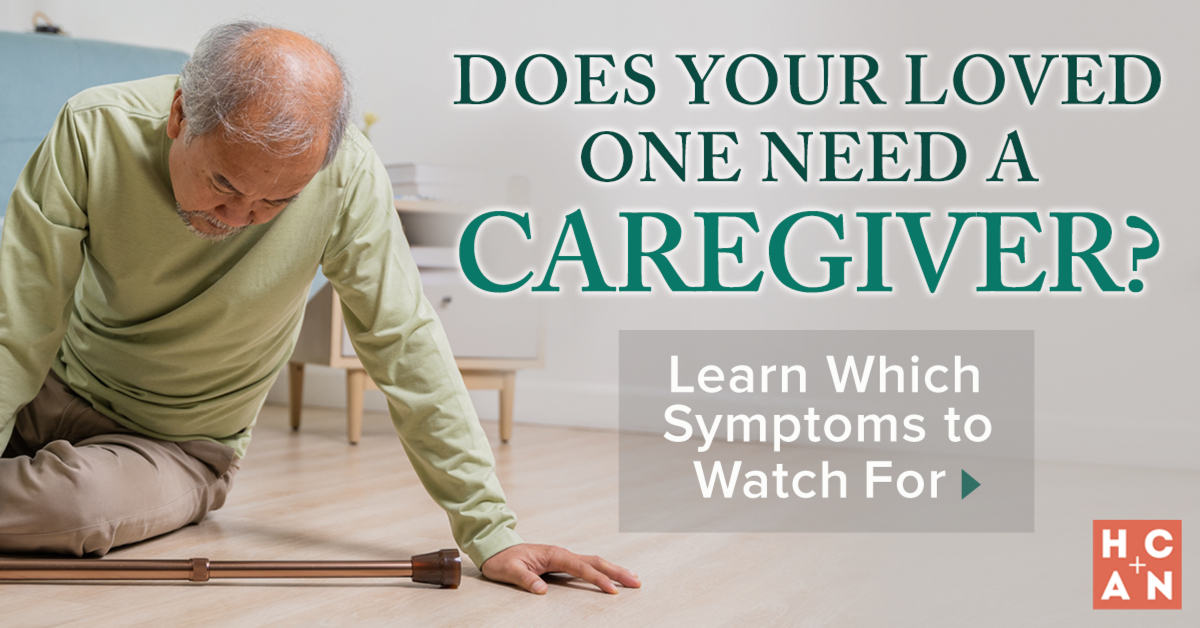The last time you visited your mom, you noticed something was off. Maybe she was a little more forgetful than usual or she struggled to get out of a chair. Perhaps you spied an unopened stack of mail or an unexplained dent in her car.
Although subtle, these can be signs that your mom may need a little help to continue living safely in her home.
“Admitting you need help isn’t easy for most seniors. They want to remain in their own homes for as long as possible, so they likely will downplay or try to hide any potential threat to their independence,” said Sierra Goetz, co-founder and operations manager of Tudor Oaks Home Care’s partner, the HomeCare Advocacy Network (HCAN). “Because it’s unlikely they’ll ask for help, it’s important for loved ones to understand the signs the signs that may indicate they need assistance,”
Goetz said common signs that may indicate your aging loved one needs help at home, include:
Struggling with activities of daily living. Activities of daily living (ADLs) is a term used by aging professionals to refer to basic self-care tasks, which are critical to maintaining independence. Help is usually needed if your senior has trouble bathing and grooming, dressing, toileting, eating, walking or transferring from one place to another – a chair or bed, for example.
Neglecting household chores. A disorganized or cluttered home is a red flag that your loved one needs assistance. Other things to look for include – stacks of unopened mail, unpaid bills, spoiled food in the refrigerator, unfilled prescriptions, stained furniture or carpet and failure to maintain outdoor areas (garbage collection, snow removal, etc.).
Changes in appearance. Unexplained weight loss can be a sign that your aging loved one has poor eating habits or has difficulty shopping for food and cooking. It should also be concerning if you notice they are wearing soiled clothing or have poor personal hygiene.
Changes in cognition, memory and judgement. It’s often difficult to know if your aging loved one’s memory issues are due to typical age-related changes or early signs of dementia. Signs of dementia vary, but typical indicators include short term memory loss, lack of concentration and increased confusion, losing things, difficulty completing familiar tasks, language and speech problems, poor judgement, mood swings and withdrawing from family.
Changes in behavior. Feeling down every now and then is a normal part of life, but if those feelings last for a few weeks or months, it should be concerning. Your aging loved one might be suffering from depression if he/she lacks drive or motivation, loses interest in hobbies and activities, has difficulty keeping track of time, doesn’t return calls from friends or family members, is easily agitated or has sleeps more than usual.
“Noticing one or more of these signs doesn’t mean your loved one needs to move out of his or her home. It just means they may need additional support to remain happy, healthy and safe,” Goetz said. “Whether it’s for just a few hours a week or around the clock, Tudor Oaks Home Care’s professional caregivers provide everything from companionship to personal and dementia care. We can help your loved one maintain their independence while giving you much needed peace of mind.”
If you suspect your aging loved one needs help at home, visit tudoroakshomecare.com.
